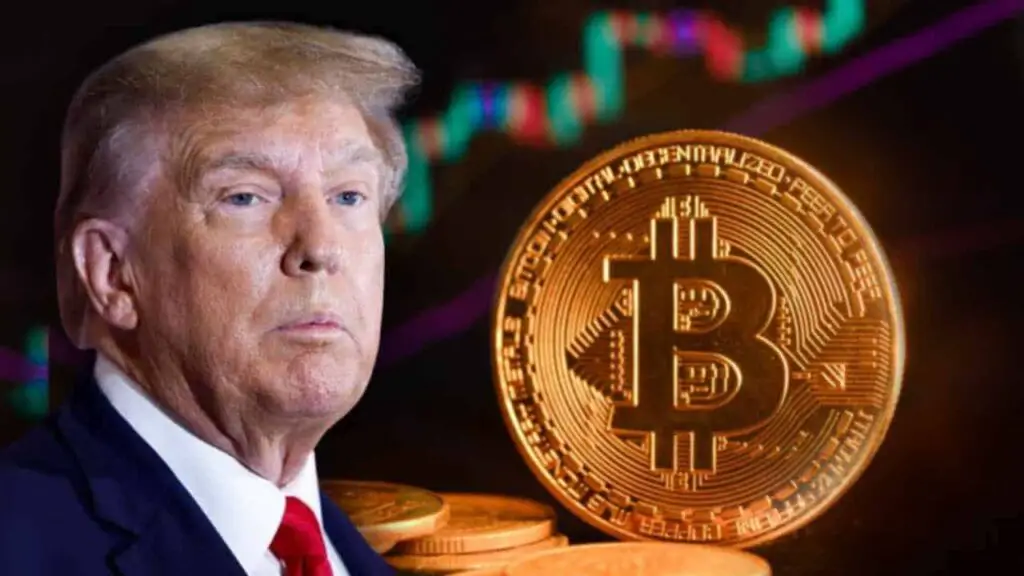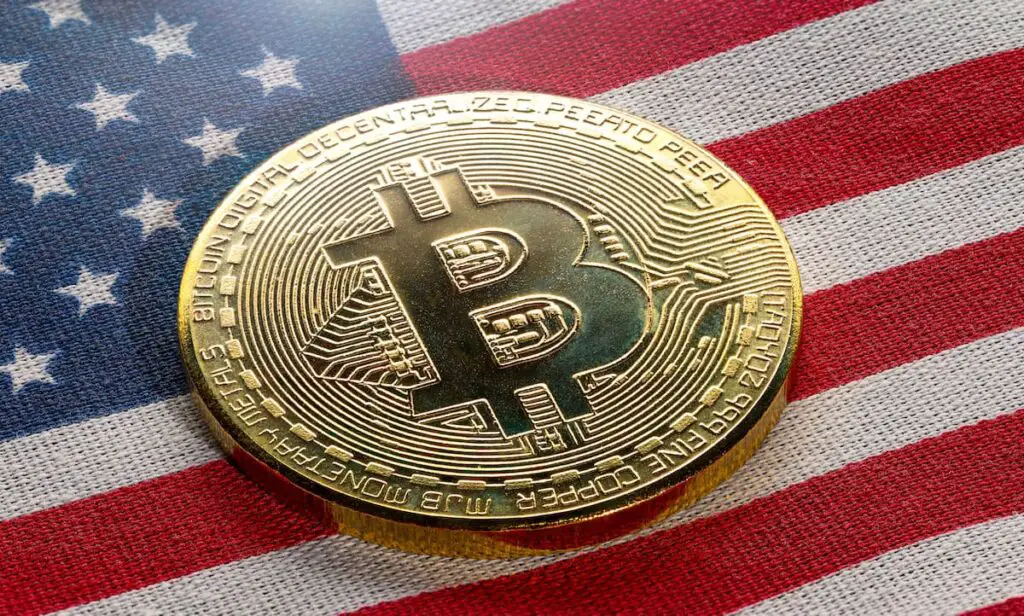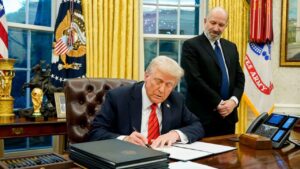Are American Politicians Secretly Manipulating Bitcoin to Boost Their Wealth?
Bitcoin and Power: Are U.S. Politicians Secretly Controlling the World’s Top Cryptocurrency?

In the murky world of cryptocurrency, where transparency is paradoxically one of its founding principles, there are growing whispers that Bitcoin may not be as independent as it seems. Some speculate that powerful figures in American politics could be secretly manipulating the digital gold rush for their gain. While Bitcoin enthusiasts tout its decentralized nature, this shadowy intersection of politics and cryptocurrency raises serious questions: Is Bitcoin truly free from influence, or is it being quietly controlled by the very politicians who publicly criticize it?
This article delves into the speculative but compelling narrative of how some of America’s biggest politicians may be linked to Bitcoin, the methods they could be using to influence the market, and why the implications matter to everyone invested in the future of digital finance.
Public Stances: Smoke and Mirrors?
Bitcoin is no stranger to criticism from the political elite. Over the years, many prominent U.S. politicians have taken firm, and often negative, stances on cryptocurrencies. In 2019, then-President Donald Trump dismissed Bitcoin outright, tweeting: “I am not a fan of Bitcoin and other cryptocurrencies, which are not money and whose value is highly volatile and based on thin air.” Around the same time, Democratic Senator Elizabeth Warren also condemned Bitcoin, calling it a “poor investment” and expressing concerns about its environmental impact.
While these public remarks may seem like clear opposition, they could also serve as a strategic distraction. Political experts point out that Bitcoin’s volatile nature makes it ripe for behind-the-scenes activity, where public denouncement could discourage ordinary investors while private portfolios flourish in the shadows.
Moreover, such statements often coincide with legislative efforts to regulate—or deregulate—cryptocurrency markets, sparking further speculation that political insiders might have financial incentives tied to these moves.

Bitcoin Whales: Could Politicians Be Hiding Among Them?
Bitcoin’s decentralized architecture ensures that the identities of its largest holders—known as “whales”—remain anonymous. These whales wield significant influence over Bitcoin’s price; a single large trade can trigger market-wide ripples. But who are these whales?
Blockchain analytics have tracked major Bitcoin movements that appear tied to politically significant events, such as legislation debates or Federal Reserve announcements. For instance, during the 2021 debate over the Infrastructure Bill, which included provisions targeting cryptocurrency tax reporting, Bitcoin’s price saw sharp fluctuations. Analysts observed unusually large transactions during these periods, fueling rumors that some of these whales could be political insiders exploiting their knowledge of impending legislation.
Adding to the intrigue is the use of blind trusts, financial vehicles often utilized by U.S. politicians to obscure their investments. These trusts, while legal, offer a convenient cover for potential Bitcoin holdings, enabling influential figures to invest in cryptocurrencies without public disclosure. Critics argue that this lack of transparency creates fertile ground for conflicts of interest.
Lobbyists and the Crypto Connection
Cryptocurrency lobbying in Washington, D.C., has grown dramatically in recent years, mirroring the rise in Bitcoin’s popularity. In 2023, lobbying firms representing crypto exchanges and blockchain companies spent over $25 million advocating for favorable regulations. While these efforts are officially aimed at promoting innovation, skeptics suggest that lobbyists could also be brokering private deals between politicians and crypto firms.
Consider the sudden rise of Bitcoin exchange-traded funds (ETFs) in the U.S., which allow institutional investors to trade Bitcoin without owning it directly. The approval of these ETFs has been met with criticism for potentially favoring the interests of large-scale investors over everyday traders. Some suggest that this regulatory approval was expedited due to behind-the-scenes influence, possibly involving campaign contributions or other incentives.
Campaign finance records show an increasing number of political donations made in Bitcoin. These donations, often anonymous and untraceable, have raised concerns about their potential to influence policy decisions. While legal, the lack of accountability surrounding these contributions adds another layer of opacity to the relationship between politics and cryptocurrency.
A Federal Reserve Conspiracy?
The Federal Reserve has consistently expressed caution regarding Bitcoin, warning of its volatility and potential to undermine the U.S. dollar. However, conspiracy theories persist that the central bank may be secretly leveraging Bitcoin for its purposes.
Some theorists argue that the Federal Reserve could be indirectly involved in Bitcoin trading through proxies, using the cryptocurrency as a tool to counter inflation or destabilize rival economies. While no concrete evidence supports this claim, the theory underscores the broader mistrust of institutions in the cryptocurrency community.
Interestingly, Federal Reserve officials have made conflicting statements about Bitcoin’s role in the financial system. While some acknowledge its potential as a hedge against inflation, others dismiss it as a speculative asset. This mixed messaging further fuels suspicions that the Fed’s public stance may not reflect its private actions.
Bitcoin’s Role in Campaign Financing
The use of Bitcoin in political campaigns represents another avenue for potential manipulation. In the 2024 U.S. presidential election, several candidates reported receiving significant Bitcoin donations, raising questions about their origins. Unlike traditional campaign contributions, Bitcoin donations can be made anonymously, making it difficult to trace their source.
Some political analysts suggest that these donations could be a means of gaining influence over candidates, effectively allowing wealthy donors—or even foreign entities—to shape policy decisions. This lack of transparency poses a significant challenge to the integrity of the democratic process.
Furthermore, the timing of these donations often coincides with major crypto market events, such as the approval of new regulations or the launch of government-backed blockchain initiatives. This pattern suggests a potential connection between political campaigns and market manipulation.
The Impact of Political Involvement on Bitcoin
If U.S. politicians are indeed secretly involved in Bitcoin, the implications are far-reaching. Here are some of the key risks:
- Market Manipulation: Insider knowledge allows politicians to exploit Bitcoin’s volatility for personal gain, leaving retail investors vulnerable.
- Policy Conflicts: Politicians with undisclosed Bitcoin holdings may prioritize policies that benefit their investments over the public good.
- Erosion of Trust: Bitcoin’s appeal lies in its promise of decentralization and transparency. Political involvement undermines this narrative, potentially deterring future adopters.
On the flip side, political interest in Bitcoin could also accelerate its mainstream adoption. Pro-crypto policies, driven by hidden investments, might pave the way for broader acceptance of digital currencies.
Calls for Transparency
To address these concerns, experts and advocates are calling for greater transparency in political finances. Proposals include mandatory disclosure of cryptocurrency holdings by public officials and tighter regulations on Bitcoin donations to political campaigns.
Blockchain technology itself could offer solutions. By leveraging its transparency, governments could establish public ledgers to track political investments and campaign contributions. Such measures would help restore trust in both the political and cryptocurrency systems.
Conclusion
The idea that powerful U.S. politicians are secretly running Bitcoin is both intriguing and unsettling. While concrete evidence remains elusive, the lack of transparency surrounding political investments and campaign financing leaves room for speculation.
Whether these whispers are grounded in truth or fueled by conspiracy, one thing is clear: the intersection of politics and Bitcoin demands closer scrutiny. As digital currencies continue to reshape the global financial landscape, the public has a right to know who is pulling the strings—and for whose benefit.
Bitcoin may promise decentralization, but the power it wields is undeniable. And in the world of politics, power rarely operates in plain sight.







